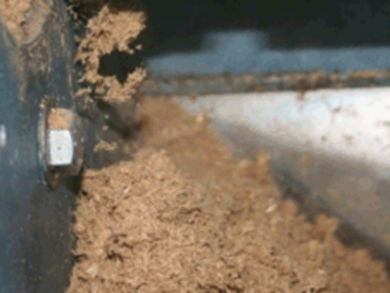Brewer’s spent grains (BSG) are a by-product of beer production that is traditionally used as animal feed. But due to an ongoing decline in demand and to legal constraints for disposal, other solutions are required. Unfortunately, the high water content of BSG and the contamination with protein and ash make an economic treatment difficult. However, since many breweries try to shift their energy supply to renewable sources and since BSG are available throughout the whole year, an energetic usage is of particular interest.
Andreas Weger, Fraunhofer Institute for Environmental, Safety, and Energy Technology (UMSICHT), Oberhausen, Germany, and colleagues propose a combination of mechanical, biological, and thermal methods to process BSG. A mechanical pre-treatment with a screw press reduces the overall water content and transfers digestible components such as fat and proteins into the press water. The press cake is then co-incinerated with wood chips while the press water is digested to biogas.
An economic analysis reveals that although the energetic output is not enough to completely cover the energy requirements of a brewery, the process works efficiently, costs are competitive compared with heating oil prices, and greenhouse gas emissions can be reduced. Overall, this strategy could be a promising incentive to implement a renewable energy supply strategy at breweries.
- Optimized Energetic Usage of Brewers’ Spent Grains,
Andreas Weger, Rolf Jung, Fabian Stenzel, Andreas Hornung,
Chem. Eng. Technol. 2017, 40, 306–312.
DOI: 10.1002/ceat.201600186The article is part of the Special Issue: Bioenergy – More Than a Secure Reserve in the Future Energy Mix?!,
Chem. Eng. Technol. 2017, 40 (2), 205–422.
